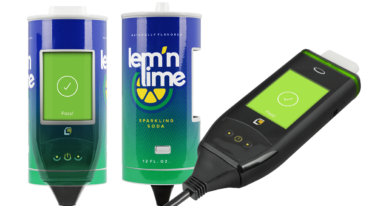
Can an Interlock Device be Transferred to Another State?
In the past decade, the installation of ignition interlocks has become mandatory for DUI violators in the majority of states. Even the states that do not have an interlock requirement for first-time DUI offenses usually have interlock consequences for repeat violators or violators who blow above a particular blood alcohol content. If you have an interlock device in your vehicle but are planning to move out of state, you might be wondering what, if anything, you are required to do to ensure that you are abiding by the law.
Navigating State Lines with Your Ignition Interlock Device
When you’re enrolled in an ignition interlock program, understanding how to manage your ignition interlock device (IID) while traveling is crucial. Here’s everything you need to know about maintaining compliance and your driving privilege when crossing state borders.
Can You Drive Out of State with an Interlock?
Yes, can you drive out of state with an interlock device is a common question for those in an ignition interlock program. The answer generally depends on the specific interlock law and iid requirement of your state and the state you intend to visit. Most states allow you to travel with an IID, but it’s vital to verify this with your state’s DMV to ensure compliance with all traffic law and iid restriction.
Interstate Driver’s Licenses Compact
If you move across state lines, in all likelihood you will not be legally allowed to remove your interlock device. Further, thanks to the Interstate Driver’s Licenses Compact, you will probably still be required to maintain the interlock device for the entirety of the court mandate.
Initially proposed in 1962, the concept underlying the Interstate Driver’s Licenses Compact was, “one driver, one license, one record.” This compact was meant to create a universal system of monitoring drivers and preventing them from racking up legal issues in one state and then simply moving onto the next. States realized that if they wanted to prevent such reckless driving and unlawful activity, they would have to cooperate and work together to keep American roads safe.
Strictly speaking, the IDLC is a compact between states where they agree to exchange information having to do with a person’s license. Topics include:
- Traffic offenses
- Convictions
- License suspensions
- Interlock requirements
Today, 44 of the 50 states are participants of the IDLC. So, unless you are moving to one of the following states: Georgia, Massachusetts, Michigan, Nevada, Tennessee, or Wisconsin, you will be legally obligated to maintain your interlock device. Even though states like Nevada might not be a part of the IDLC, they have their own state-mandated DUI regulations that would commence the moment you move to that state.
Understanding Your Interlock Restricted License
An interlock restricted license often comes with stipulations that are crucial to follow to avoid penalties such as license suspension. Before planning your trip, consult with your interlock program provider or legal advisor to understand the boundaries of your ignition interlock restriction.
Ignition Interlock Device Installation and Travel
Traveling doesn’t mean leaving your responsibilities behind. Here’s how to manage your ignition interlock device installation while on the move:
Schedule Ahead for Maintenance
Make sure you’re up-to-date with your IID installation appointments. If you have a trip planned around your service date, contact your provider in advance to reschedule or arrange a service in the state you’ll be visiting.
Legal Implications
Failing to maintain your ignition interlock device while traveling can lead to serious repercussions, including license suspension or revocation. Always keep the ignition interlock requirement in mind and adhere strictly to scheduled check-ins.
Tips for a Smooth Journey with an IID
Manage Appointments: Missing a recalibration or maintenance appointment can lead to penalties. Always ensure you’re scheduled for necessary services, regardless of your location.
Verify State Recognition: Not all states may recognize your interlock license. Check if the state you are visiting acknowledges your restricted license and make any necessary arrangements.
Contact Authorities: Inform your probation officer or the relevant traffic law enforcement agencies in both your home and destination states about your travel plans.
Transferring Your Device
Whether you are leaving the state or already have a DUI offense in a different state, the act of transferring your device is analogous. One state must collect the data from the device and the other state needs that gathered data. Fortunately, if you have a service provider like Low Cost Interlock, with various locations in every state, this process shouldn’t be too difficult.
If you are moving states it is essential that you confirm the following:
- You have notified the state court in which you were given your DUI that you are moving to another state.
- You have confirmed that the court recognizes that another state will be a party in the interlock data gathering.
- Your interlock provider in your residential state has been alerted to your situation, has service locations in the new state, and has previously worked with state authorities there.
- You are able to make recalibration appointments for your interlock device, even when a move is happening. Regardless of the circumstances, a missed appointment is a violation and carries serious consequences.
- The DMVs in both states have been informed about your move.
By crossing your T’s and dotting your I’s, you reduce any chances of a misunderstanding. While such mix-ups might seem minor, they could lead to severe legal repercussions. This could be fines, extended interlock sentencing, or convictions. Maintaining compliance ensures that you can get your interlock device off as soon as possible.
What if the New State Has Different Requirements?
If you are moving to a state with different ignition interlock regulations, you are still legally obligated to satisfy the legal mandates of the state in which you originally received the DUI. This is true regardless of whether or not you lived in the state when you received the violation.
As mentioned above, thanks to the IDLC, most states already share traffic violation information. So, if you are found to be non-compliant with the state your DUI offense took place in, then the residential state can intervene and either:
- Suspend your license
- Revoke your license
- Impose further penalties
- Extend your interlock device timeline
A word to the wise: an attempt to evade a DUI interlock mandate will likely end up with further fines, penalties, and possible jail time. If you want your remaining time with your interlock device to be hassle-free, be open and honest with both state agencies.
LowCost Interlock
Low Cost Interlock has helped thousands of customers successfully move across the country while remaining in compliance with both their old state and new state policies. With multiple locations in almost every state, Low Cost Interlock ensures an easy transfer process. If you have any questions or concerns, feel free to contact us today for more information.


